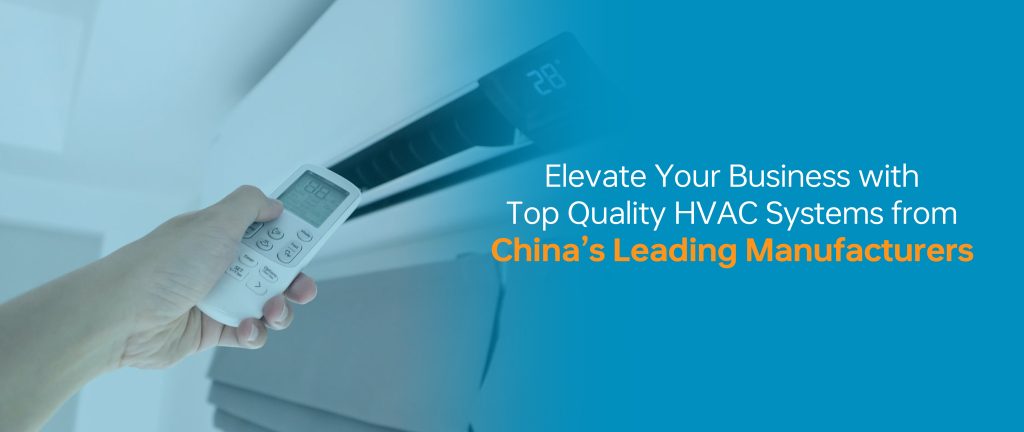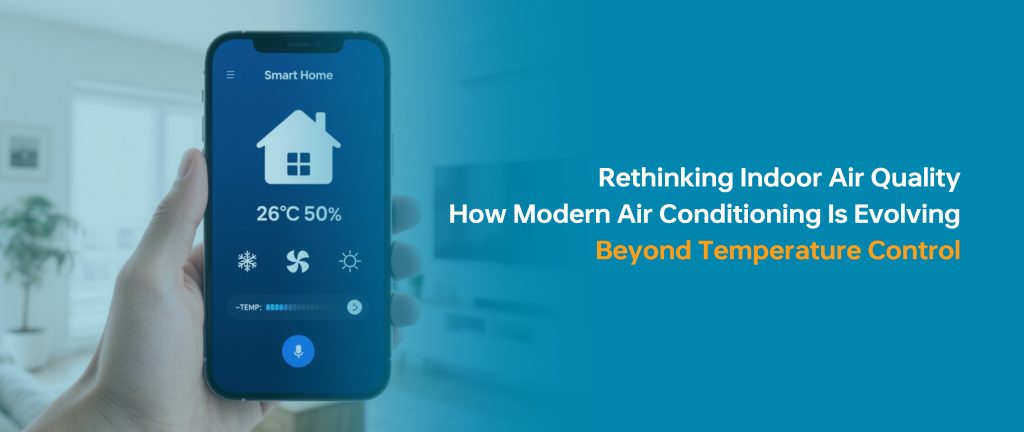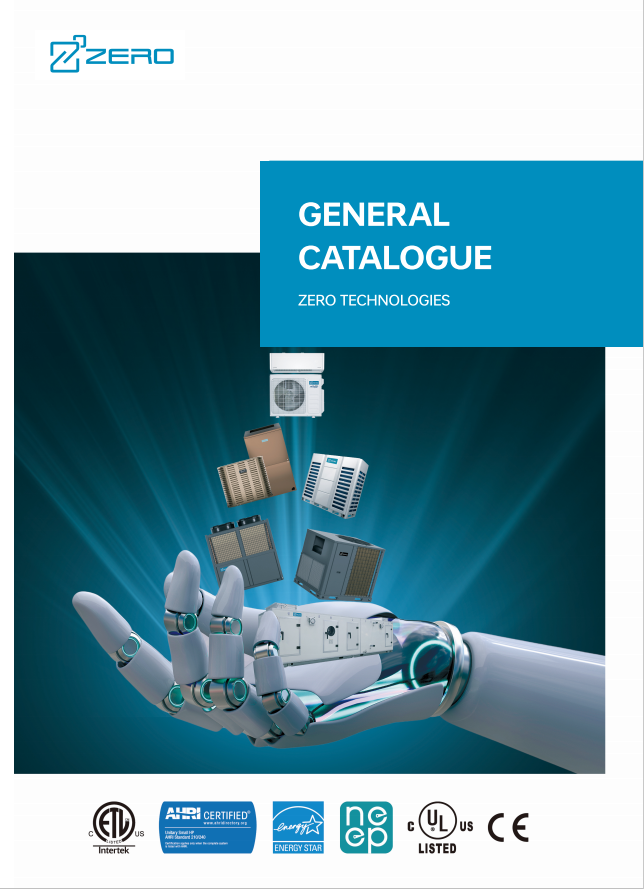The HVAC (Heating, Ventilation, and Air Conditioning) industry is a cornerstone of modern infrastructure, ensuring comfort, safety, and energy efficiency across residential, commercial, and industrial sectors. With growing urbanization, climate change challenges, and technological advancements, the global HVAC market is projected to exceed $367 billion by 2030, driven by demand for sustainable and smart solutions. This article explores the top 10 HVAC companies worldwide, their innovations, market strategies, and the trends shaping the future of climate control.
1.Global HVAC Market Overview
The HVAC industry is undergoing a transformative phase. According to Statista, the market grew at a CAGR of 5.2% between 2020 and 2023, with Asia-Pacific leading demand due to rapid urbanization and extreme weather conditions. Key drivers include:
– Energy Efficiency Regulations: Governments worldwide are enforcing stricter standards, such as the EU’s Ecodesign Directive and the U.S. SEER2 ratings, pushing manufacturers to innovate.
– Smart Technology Integration: IoT-enabled systems, AI-driven predictive maintenance, and cloud-based controls are redefining user experience.
– Sustainability Goals: The shift to low-GWP refrigerants (e.g., R-32) and renewable energy integration aligns with global net-zero targets.
2.Top 10 HVAC Companies in the World
- Carrier Global Corporation
– Founded: 1915
– Headquarters: Palm Beach Gardens, Florida, USA
– Revenue: $20.6 billion (2022)
– Key Products: Centrifugal chillers, ductless systems, smart thermostats.
Carrier, a pioneer in modern air conditioning, remains a market leader through innovations like the Greenspeed Intelligence platform, which optimizes energy use via AI. Acquired by United Technologies Corporation (UTC) and later spun off in 2020, Carrier dominates commercial HVAC with solutions for skyscrapers, data centers, and hospitals.
- Daikin Industries Ltd.
– Founded: 1924
– Headquarters: Osaka, Japan
– Revenue: $25.5 billion (2022)
– Key Products: VRV systems, heat pumps, air purifiers.
Daikin leads in inverter technology and eco-friendly refrigerants. Its SkyAir series is a benchmark for energy efficiency, while its Emura residential units combine aesthetics with performance. Daikin holds 20% of the global HVAC market share, with strongholds in Asia and Europe.
- Trane Technologies
– Founded: 1913
– Headquarters: Dublin, Ireland
– Revenue: $16.4 billion (2022)
– Key Products: Commercial chillers, geothermal systems, building automation.
A subsidiary of Ingersoll Rand, Trane excels in large-scale projects, such as the Burj Khalifa’s HVAC system. Its EcoWise portfolio emphasizes refrigerants with 78% lower GWP, aligning with the Kigali Amendment.
- Lennox International Inc.
– Founded: 1895
– Headquarters: Richardson, Texas, USA
– Revenue: $5.1 billion (2022)
– Key Products: Solar-ready ACs, Dave Lennox Signature® Collection.
Lennox focuses on residential and light commercial markets, with products like the SL25XPV heat pump, offering 26 SEER efficiency. The company’s iComfort® S30 thermostat integrates with Amazon Alexa for voice control.
- Johnson Controls (York)
– Founded: 1885
– Headquarters: Cork, Ireland
– Revenue: $23.7 billion (2022)
– Key Products: Variable refrigerant flow (VRF) systems, building management software.
York, a subsidiary of Johnson Controls, specializes in smart buildings. Its OpenBlue platform uses AI to reduce energy consumption by up to 50% in commercial spaces.
- Mitsubishi Electric Corporation
– Founded: 1921
– Headquarters: Tokyo, Japan
– Revenue: $40.8 billion (2022)
– Key Products: City Multi VRF systems, lossnay ventilators.
Mitsubishi Electric’s Hybrid VRF systems combine heat recovery and geothermal energy, ideal for net-zero buildings. The company holds 12% of the global HVAC market, with significant R&D investments in hydrogen-compatible technologies.
- Rheem Manufacturing Company
– Founded: 1925
– Headquarters: Atlanta, Georgia, USA
– Revenue: $4.8 billion (2022)
– Key Products: EcoNet® smart water heaters, Prestige Series furnaces.
Rheem is a leader in residential HVAC, particularly in North America. Its EcoNet® app allows users to monitor energy usage and adjust settings remotely. Rheem also partners with Tesla on solar-integrated HVAC systems.
- Nortek Global HVAC (Midea Group)
– Founded: 1968
– Headquarters: Shanghai, China
– Revenue: $52.3 billion (2022, Midea Group)
– Key Products: Ductless mini-splits, packaged terminal ACs.
Nortek, acquired by China’s Midea Group in 2016, offers affordable solutions under brands like Frigidaire and Reznor. Midea’s Turbomaster air conditioners dominate emerging markets with high COP (Coefficient of Performance) ratings.
- LG Electronics
– Founded: 1958
– Headquarters: Seoul, South Korea
– Revenue: $63.4 billion (2022)
– Key Products: Dual Vane™ ACs, Multi V™ VRF systems.
LG’s Dual Inverter Compressor technology reduces energy consumption by 70% compared to conventional units. The company is also a pioneer in UVnano air purification, which eliminates 99.9% of airborne pathogens.
- Honeywell International Inc.
– Founded: 1906
– Headquarters: Charlotte, North Carolina, USA
– Revenue: $35.5 billion (2022)
– Key Products: Building management systems, smart thermostats.
Honeywell’s Forge platform integrates HVAC, lighting, and security into a single IoT ecosystem. Its Lyric T6 Pro thermostat is widely used in smart homes and commercial buildings.
3. Ownership and Market Segmentation
Most leading HVAC brands are subsidiaries of larger conglomerates:
– Carrier Global operates independently after its spin-off from UTC.
– Trane and Thermo King fall under Ingersoll Rand’s industrial portfolio.
– York is part of Johnson Controls, which merged with Tyco International in 2016.
Market Segmentation:
– Residential: Daikin, Rheem, and Lennox lead with affordable, high-efficiency systems.
– Commercial: Carrier, Trane, and Mitsubishi Electric dominate with scalable solutions for offices and factories.
– Industrial: Honeywell and Johnson Controls provide customized HVAC for data centers and manufacturing plants.
4. Technological Innovations Driving the Industry
AI and Predictive Maintenance
Companies like Carrier and Honeywell use machine learning to predict equipment failures, reducing downtime by 30%.
Low-GWP Refrigerants
Daikin’s R-32 and Carrier’s Puron Advance® (R-454B) are replacing R-410A, cutting GWP by 75%.
Renewable Integration
Mitsubishi Electric’s heat pumps now integrate with solar panels and geothermal systems, achieving COP ratings above 5.0.
Smart HVAC Ecosystems
LG and Honeywell offer apps that sync HVAC with smart grids, optimizing energy use during peak hours.
5. Regional Leaders and Emerging Markets
– North America: Carrier, Trane, and Lennox hold 60% market share.
– Asia-Pacific: Daikin and Midea lead, with India’s Voltas and Blue Star gaining traction.
– Europe: Bosch and Vaillant focus on heat pumps, driven by EU’s REPowerEU plan.
6. HVAC Companies to Approach with Caution
While most top brands excel, some smaller companies face criticism:
– Goodman: Affordable but prone to compressor failures.
– Frigidaire: Mixed reviews on durability despite Nortek’s backing.
– Nordyne: Limited customer service in rural areas.
7. Future Trends in HVAC
– Decarbonization: Hydrogen-compatible boilers and carbon capture HVAC systems.
– Health-Centric Design: UV-C lighting and advanced filtration post-COVID-19.
– 3D-Printed Components: Reducing manufacturing costs and waste.
8. Conclusion: Choosing the Right HVAC Partner
Selecting an HVAC system requires balancing efficiency, cost, and reliability. Daikin and Carrier are ideal for cutting-edge technology, while Rheem and Lennox suit budget-conscious homeowners. For commercial projects, Trane and Mitsubishi Electric offer unmatched scalability. Always verify ENERGY STAR® ratings and warranty terms to ensure a sound investment.
As the industry evolves, embracing smart, sustainable solutions will be key to staying ahead in a climate-conscious world.





